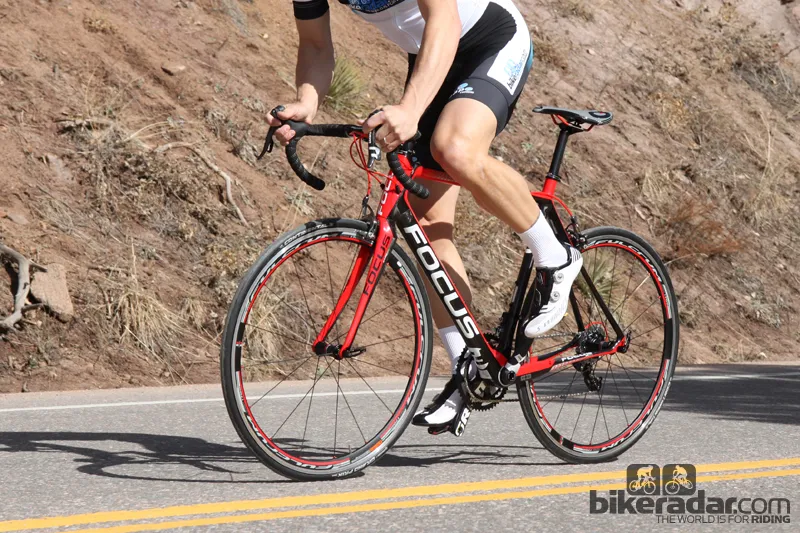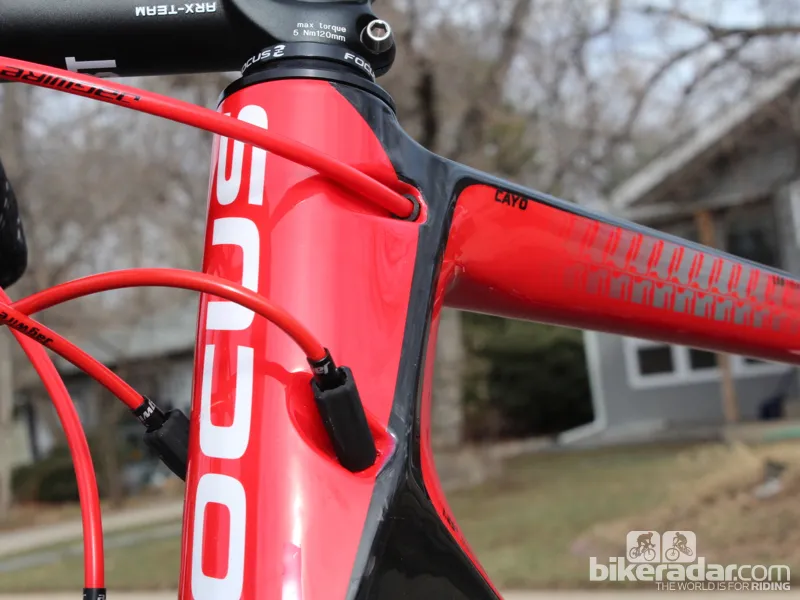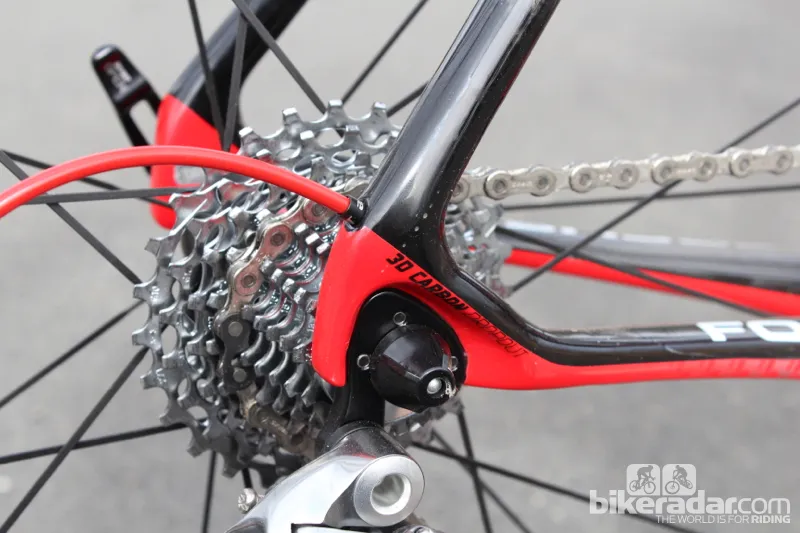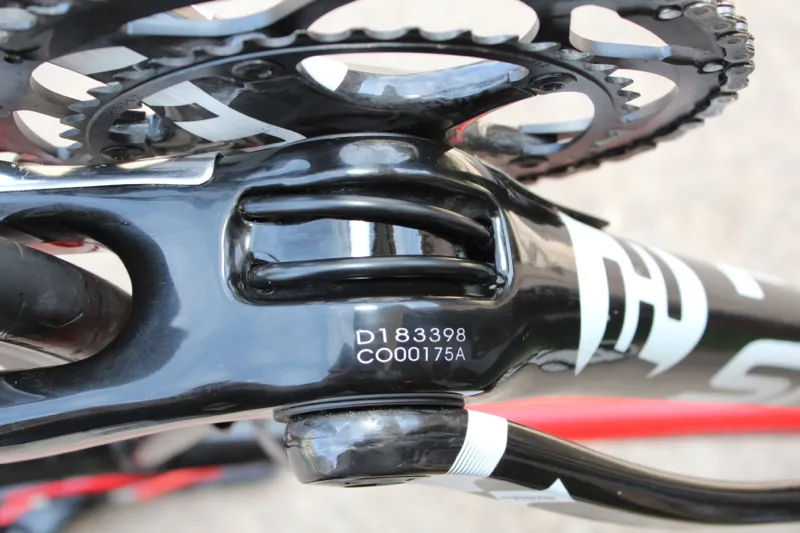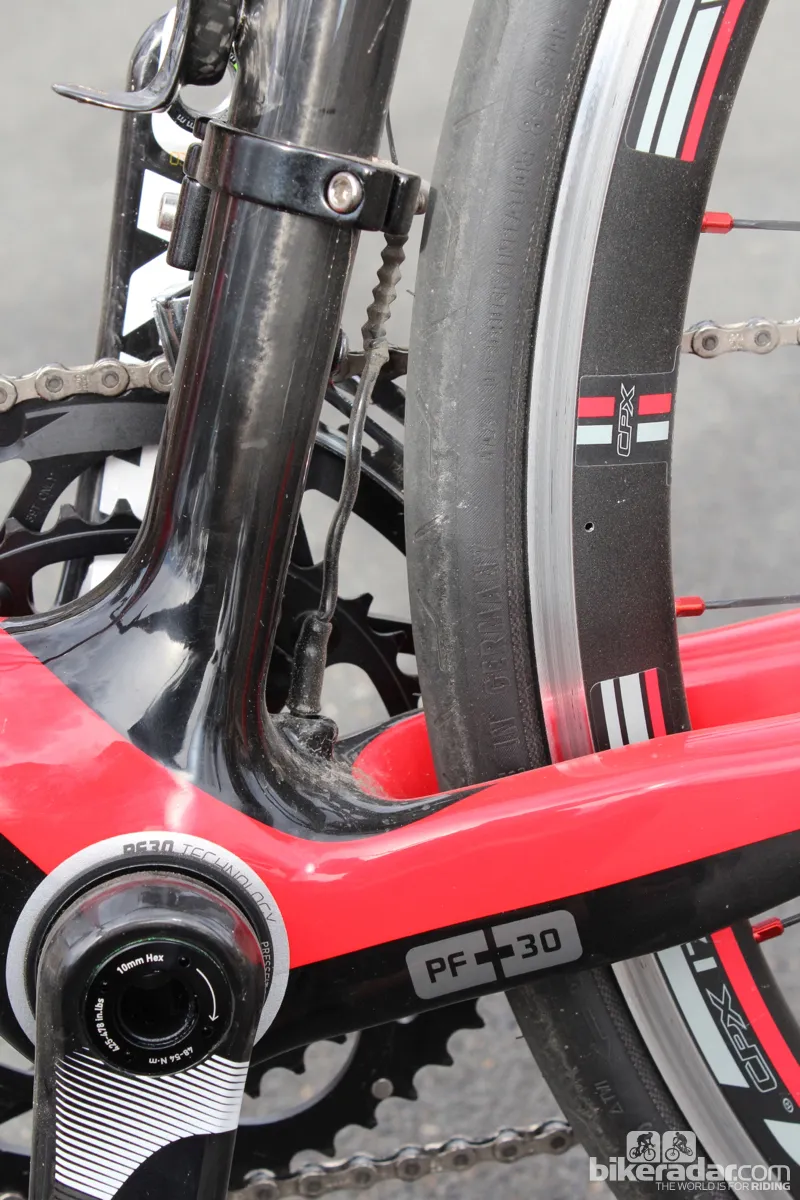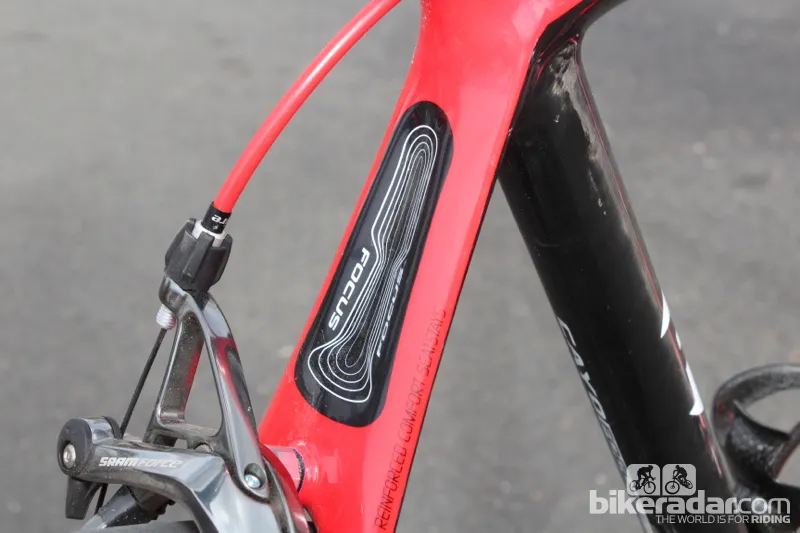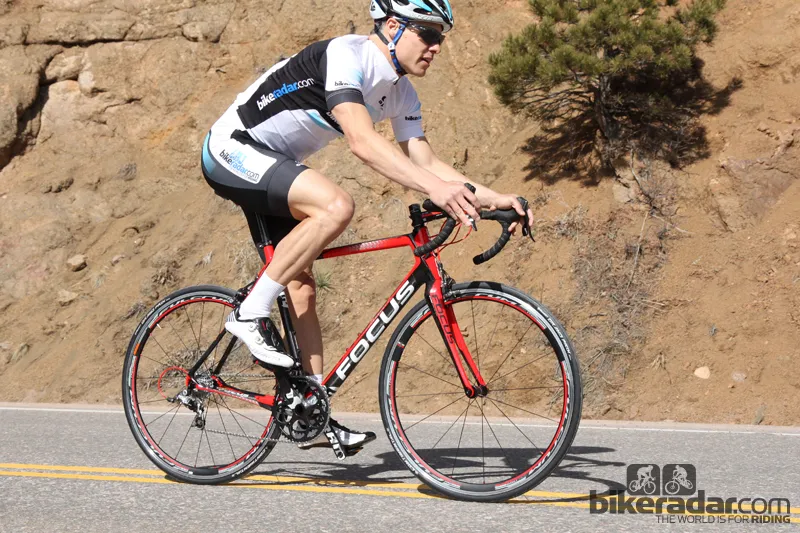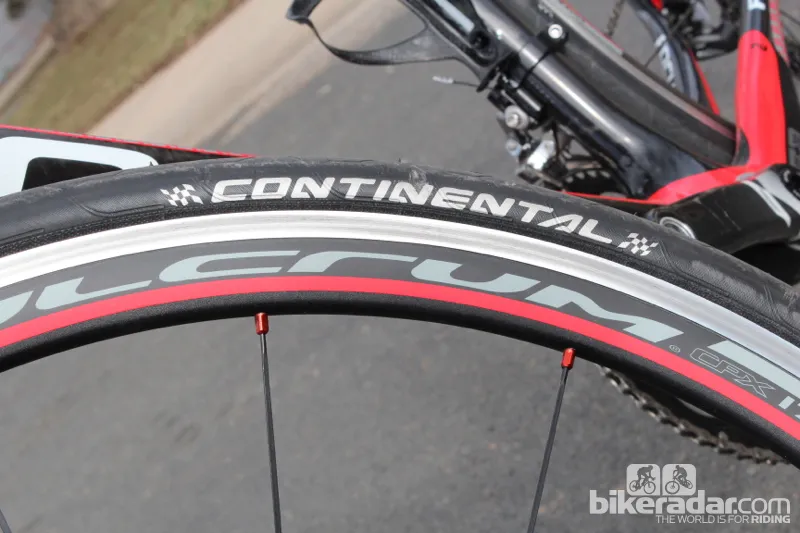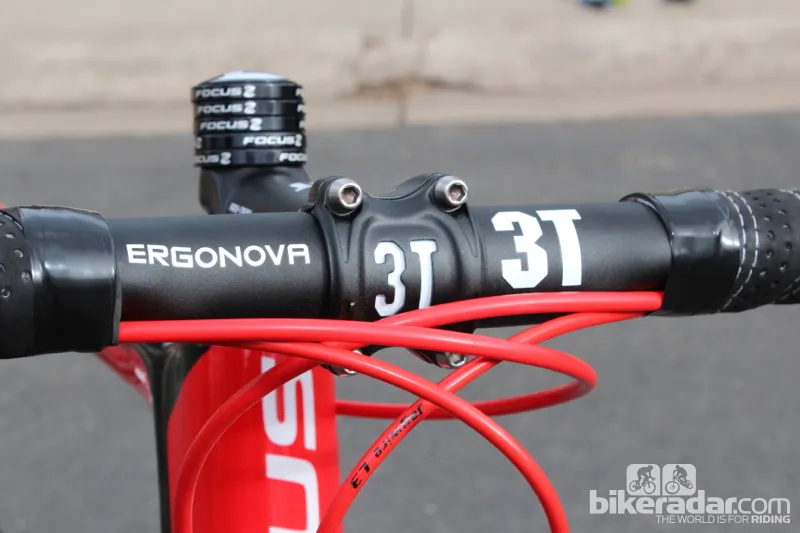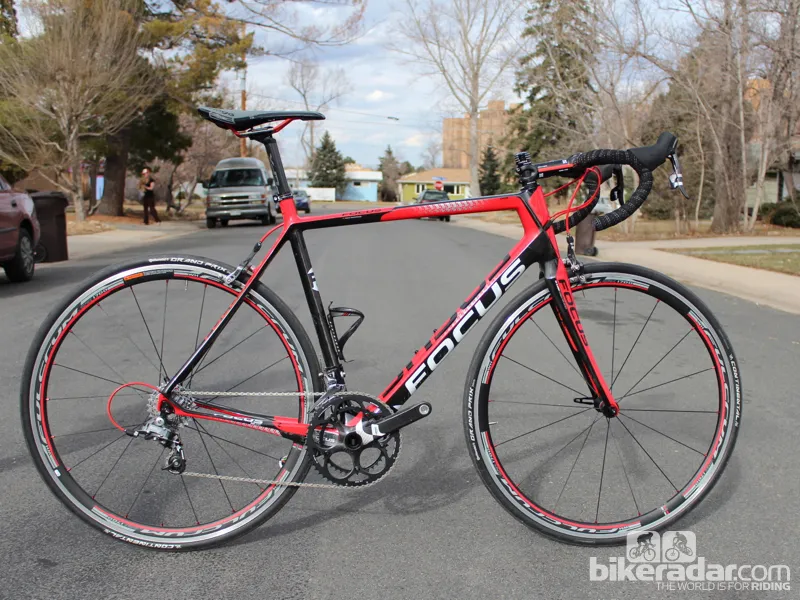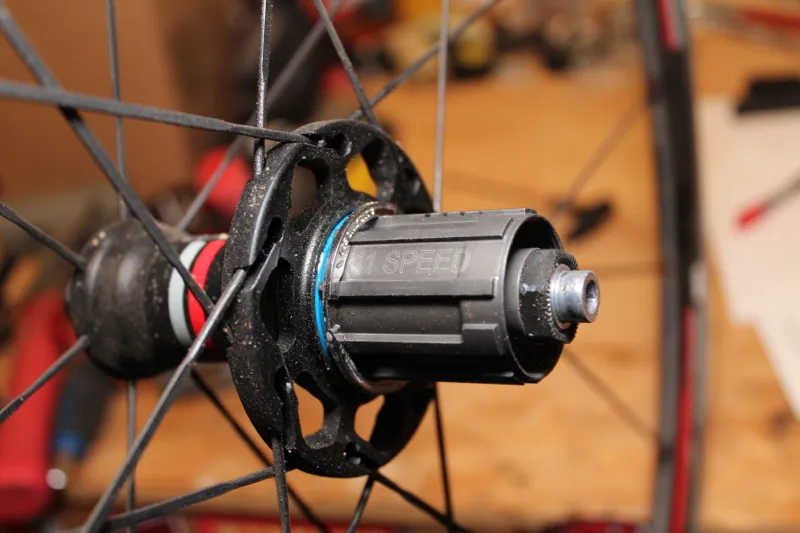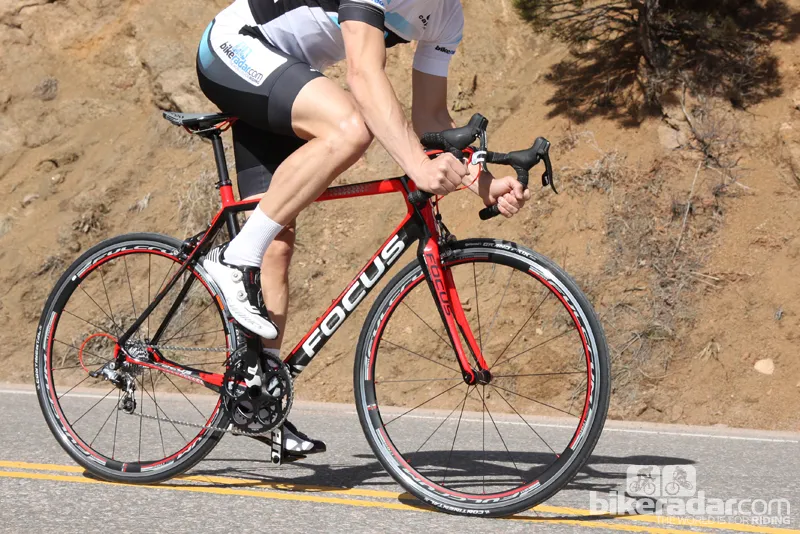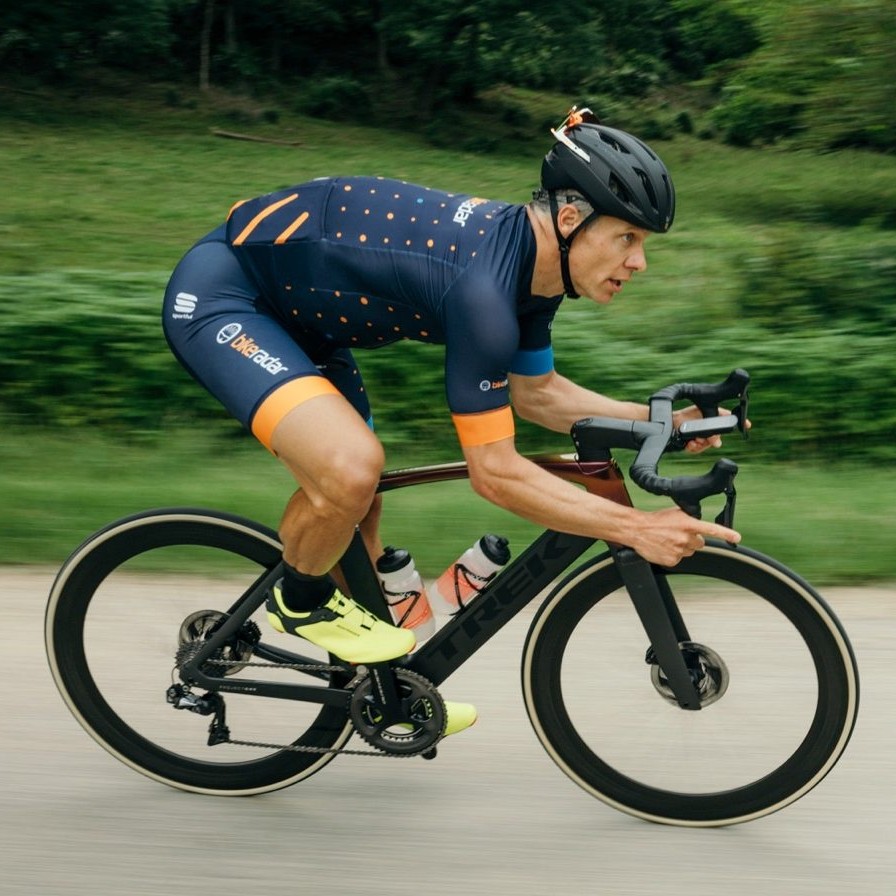Road bikes are increasingly falling into one of two general categories: sporty race machines or more upright ‘endurance’ bikes. While most bike companies are loathe to refer to their endurance bikes as comfortable — as if the word implies reclining sofas and fuzzy slippers — that is often how these bikes are bought and sold. Conversely, race-inspired bikes are expected by some to be uncomfortable; an expected price to pay for all the speed. In reality, we all want both, comfort and speed, right?
For this reviewer, the Focus Cayo Evo 3.0 is that sweet-spot bike: fast and comfy. Because of its geometry — the head tube is shorter and the stock stem is longer than one generally finds on 'endurance' road bikes — the Cayo Evo fits the sporty race bill. If you prefer a taller head tube, like on a Specialized Roubaix or Cannondale Synapse, then this is not the bike for you. But if you prefer a lower position, the Cayo Evo is worth a look.
Riding and handling: quick but comfortable
Perhaps it’s as simple as a carbon 27.2mm seatpost and some vertical flex engineered into the flat seat stays, but the bike rides smoothly over rough roads. There is plenty of torsional stiffness, as the bike descends confidently and responds quickly to out-of-the-saddle efforts. But riding over washboard dirt roads doesn’t result in tingling hands (or other parts!) the way it does on some super-stiff race rigs.
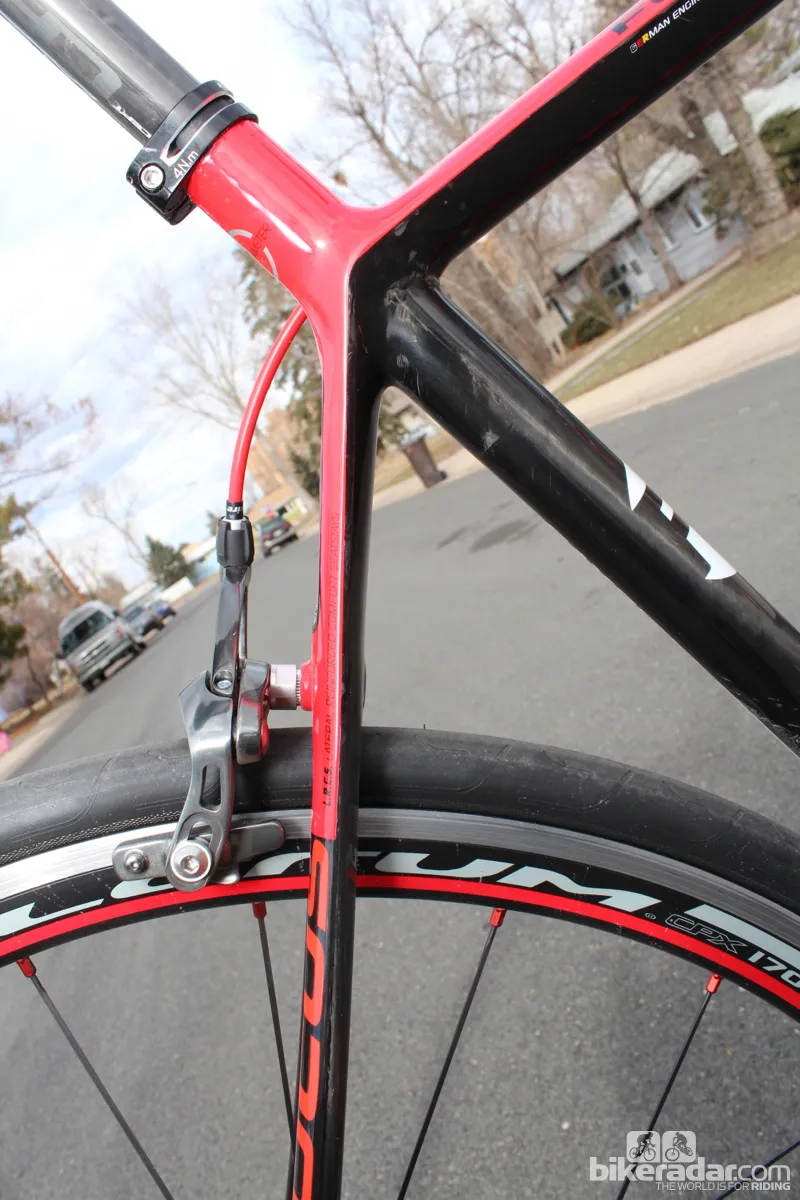
The 27.2mm carbon seatpost and flat seat stays make for a comfortable ride on the race-geometry bike
And yes, tires play a huge rolling role in this bike's comfort. Frankly, most bikes can be made to feel much harsher or smoother, depending on the girth of the tires and the pressure therein. Anyone who has paid attention to the bikes of the cobbled classics like the Tour of Flanders or Paris-Roubaix knows the pros switch out their normal 21 and 23mm tires for 25, 27 and even 28mm widths, dropping air pressure from 100-120psi down as low as 65 or 70psi. Focus picked a happy medium for the Cayo Evo 3.0 with a 24mm Continental Grand Prix, a grippy clincher tire with a great reputation.
Frame & equipment: attention to detail throughout
The details impressed us about the build. First, the cables are protected by internal routing or continuous housing tip to tail, meaning smoother shifting for longer. The derailleur cables aren’t impervious, of course, as they protrude nakedly at the derailleurs themselves, but at key areas like underneath and behind the bottom bracket the cables are protected. As an extreme example, on one sub-freezing ride a huge chunk of ice formed around the enclosed front derailleur cable - and the front derailleur shifted just fine. Thin plates on the down tube and chain stay protect the frame against damage from a dropped chain. While perhaps not as impressive as a top-end group, smart designs like these will keep your bike performing crisply for many a maintenance-free ride.
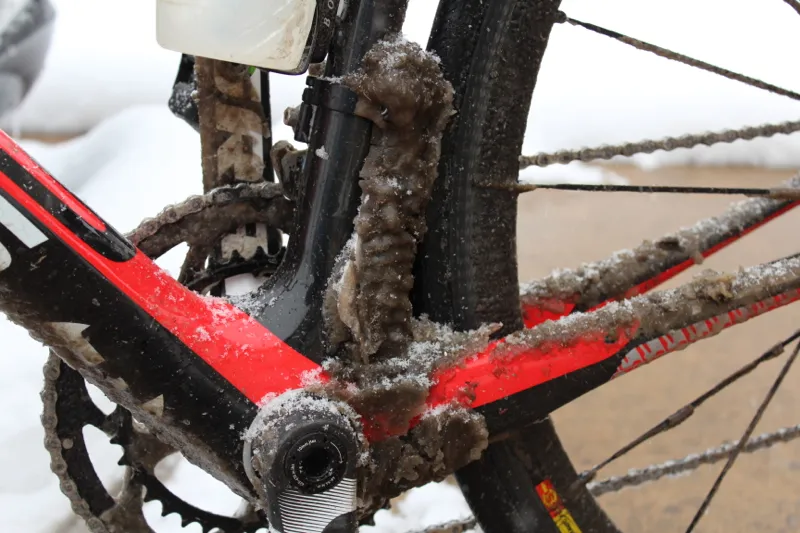
Even with road grime frozen solid around it, the front derailleur shifted fine thanks to smart housing design
The frame comes in five sizes (48, 50, 54, 57 and 60), compared to the eight variations on the higher-end Focus Izalco. Somewhat surprisingly, the Cayo Evo 3.0 is a little bit lighter and stiffer than the higher-end Izalco Pro bikes, according to Focus. Plus, it's certainly much cheaper. Why? Frame molds are expensive, and having fewer molds makes the Cayos cheaper. The tradeoff of course is fewer choices, and a greater chance that your sweet-spot size might be absent. The uncut steerer tube is a bit shorter than on many bikes, with only 30mm of vertical adjustment via the six spacers. Again, if you like a relatively low position, this shouldn't be an issue, but it underscores the importance of either knowing your measurements and/or working with a trusted retailer before you buy.
For this reviewer, the 57cm bike with a 170mm head tube, a 120mm (-6°) stem, 44cm bars and 172.5mm cranks was perfect. This bike weighed 16.78lb/7.6kg on the BikeRadar scale.
While SRAM components are curiously more expensive in the UK than in the US, complete bike builds with Force remain a lightweight and relatively cost-effective proposition. The 53/39 crankset is race-ready, and the 12-27 cassette adds a little extra help for climbing. The brakes are not the strongest, but perfectly adequate for the task at hand - especially when paired with the metal brake track of the Fulcrums instead of carbon.
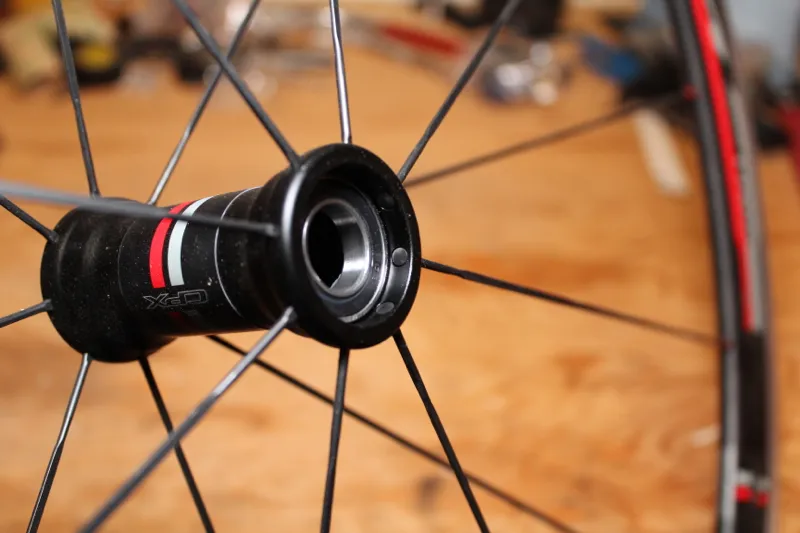
Fulcrum built these straight-pull, cartridge-bearing wheels just for Focus. We had zero issues
Built exclusively for Focus, the Fulcrum CPX 1700 wheels are a happy medium of aerodynamics and weight. We weighed the set at 1.82kg/4.01lb. A preload nut makes for decent user friendliness on the cartridge-bearing hubs. Over months of riding we had zero issues with the wheels, despite riding in sometimes foul weather and over rough roads.
The lowly seatpost seldom gets attention, but the carbon 27.2 unit on the Cayo Evo deserves some credit for taking the edge off. While many companies are adding aero (and often very stiff) posts with abandon, we appreciate a simple but very effective design in this area.
The flat-top shape of the 3T Ergonova bar feels great under the hands, especially on long rides where the distributed pressure is quite welcome. We liked the semi-compact bend shape, too. The bars are aluminum and clip-on compatible, should you feel the urge to do a time trial or - heaven forbid - enter a triathlon.
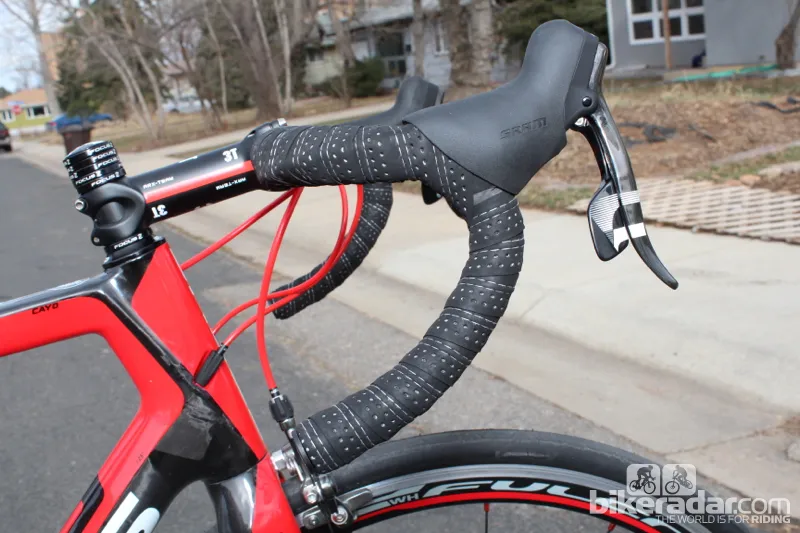
We loved the flat top of 3T's aluminum Ergonova bar and the semi-compact bend
The Prologo Navo Evo TR saddle was too narrow at the tail for one reviewer's liking, but just right for another. As perhaps the most personal of all component choices, the saddle can of course be easily swapped out for an ideal perch for the given rider.
The Cayo also comes in six other builds, from 1.0 to 6.0 plus a Limited edition. The 4.0 made the final selection for 2013 Bike of the Year from Cycling Plus.
